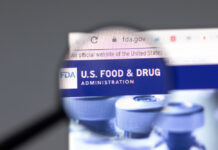A study recently published in PLOS one investigates the effect of industry gifts on medical providers’ prescribing behavior. The research team, led by Dr. Susan F. Wood of George Washington University’s Milken Institute School of Public Health, found that gift-receiving health care providers prescribed more claims per patient, at higher costs per claim than their non-gift recipient counterparts. They also prescribed 7.8% more brand-name (versus generic) drugs.
“Gifts, no matter their size, have a powerful effect on human relationships,” the study authors write.

As the authors explain, pharmaceutical companies shape medical provider behavior through a variety of financial means, including research and educational grants, consulting fees, meals, and gifts. Although research has shown that pharmaceutical marketing efforts are consistently associated with differences in prescribing behavior, physicians nevertheless tend to believe that such campaigns do not influence their prescribing.
Furthermore, industry gifts need not be high in value to show links to prescribing patterns: a 2016 study in JAMA Internal Medicine showed that doctors who were treated to one meal highlighting a “drug of interest,” with an average meal value of less than $20, had higher rates of prescribing the endorsed brand-name drug.
Few other studies have examined links between industry gifts and drug costs, prescription quantity, or brand-name drug choice. This study is also one of the first to focus on the prescribing tendencies of non-physician prescribers such as nurse practitioners (NPs), physician assistants (PAs), and podiatrists. Examining non-physician prescribing patterns is important and timely, given that NPs and PAs now write a sizeable portion of prescriptions in the U.S. The number of prescriptions written by NPs and PAs has increased significantly in recent years, numbering 676 million prescriptions in 2015, or 15.4% of 4.4 billion total prescriptions.
Wood and her team examined the link between industry gifts and medical providers’ prescribing behavior by analyzing gifts and prescribing data from providers in Washington D.C. who participated in Medicare Part D in 2013. The prescribing data reviewed by the researchers included the average number of Medicare Part D claims per provider, claims per patient, price per claim, and percentage of brand-name versus generic claims.
Prescribing information was gathered from CMS 2013 Medicare Provider Utilization and Payment Data. Industry gifts to providers, including cash, meals, and “ownership interests,” were identified using 2013 gifts data from the District of Columbia’s (DC) AccessRx program and the Federal Center for Medicare and Medicaid Services (CMS) Open Payments program, which launched in August 2013.
The researchers found that in 2013, 39.1% of Medicare Part D prescribers in D.C. (1,122 of 2,873 prescribers) received a total of $3.9 million in industry gifts. Gift values varied from $7 to $200,000 per provider.
Physicians who had accepted industry gifts prescribed an average of 892 claims each; in comparison, non-gift recipients prescribed 389 claims. Gift recipients also wrote 2.3 more claims per patient, at a higher cost per claim ($135 vs. $85). Additionally, 33.5% of the drugs they prescribed were brand-name, whereas 25.7% of non-gift recipients’ prescriptions were brand-name.
Although gifts of all sizes were found to be significantly related to prescribing behavior, larger gifts ($500+ per year) were linked to even higher costs per claim than small gifts (less than $500 per year). For example, while small gift recipients’ average cost per claim was $114, large gift recipients averaged $189 per claim. Meanwhile, non-gift recipients averaged $85 per claim.
The researchers also found that gifts were linked with large increases in average cost per claim for physician assistants ($213 vs. $63), and nurse practitioners ($180 vs. $86). Gift-receiving PAs also exhibited a significantly higher percentage of brand-name prescribing (30.2% vs. 17%).
It is important to note that although the study hints at causality in its title – Influence of Pharmaceutical Marketing on Medicare Prescriptions – the authors state that one of the study’s primary limitations is its “inability to establish causation.” Nevertheless, the strong link found between industry gifts and prescription volume, cost and brand-name drug choice, considered in light of what is known about the role of reciprocity in human relationships, certainly suggests an influence, as the authors point out.
“[Industry influence] poses both a financial burden on the healthcare system and individual patients. Further, this influence may have adverse public health implications, including polypharmacy and overtreatment that may decrease the quality of care through adverse drug reactions.”
The authors recommend additional research on pharmaceutical marketing’s effects on patient treatment and prescribing behavior, as well as the implementation of related education for medical providers. They also recommend strong restrictions on pharmaceutical marketing and increased open access to data as a way to address conflicts of interest.
“State and Federal governments should consider restricting pharmaceutical marketing on the grounds that it compromises public health. Industry gifts influence prescribing behavior, may have adverse public health implications, and should be banned.”
****
Wood SF, Podrasky J, McMonagle MA, Raveendran J, Bysshe T, Hogenmiller A, et al. (2017) Influence of pharmaceutical marketing on Medicare prescriptions in the District of Columbia. PLoS ONE 12(10): e0186060. https://doi.org/10.1371/journal.pone.0186060 (Link)














